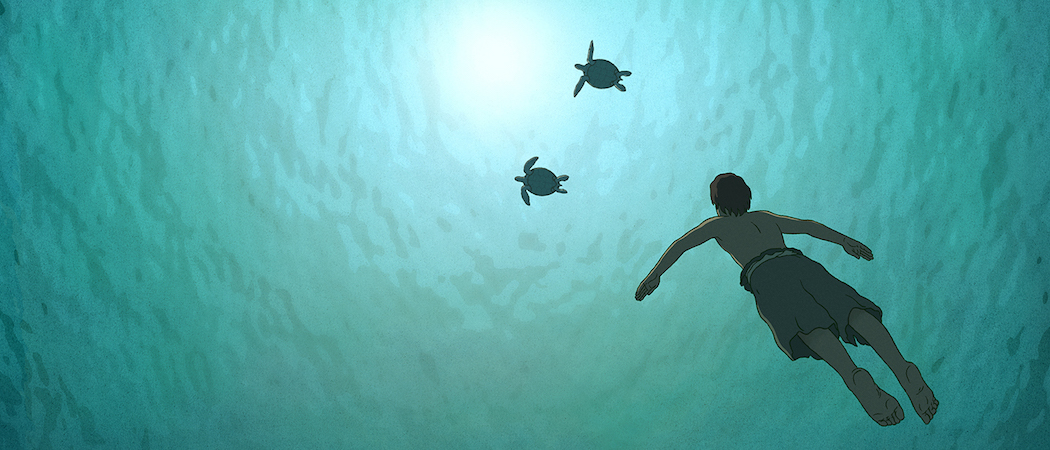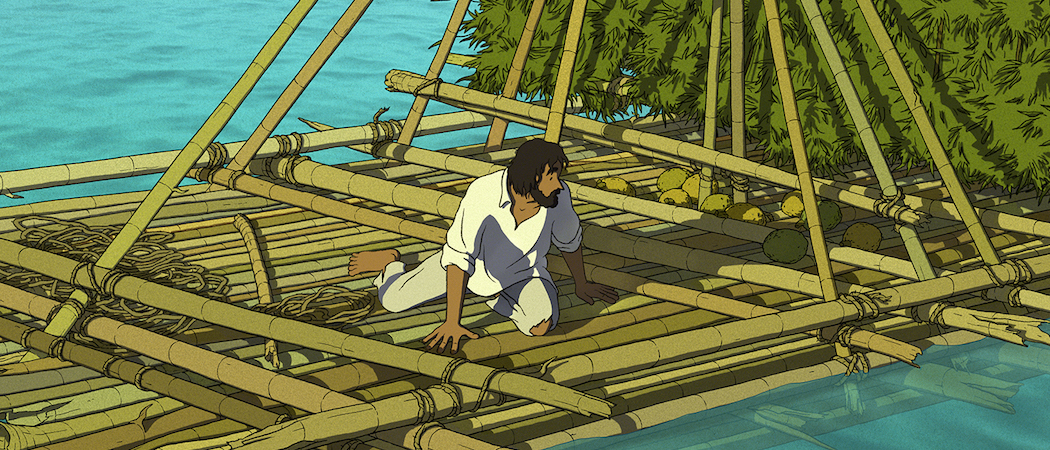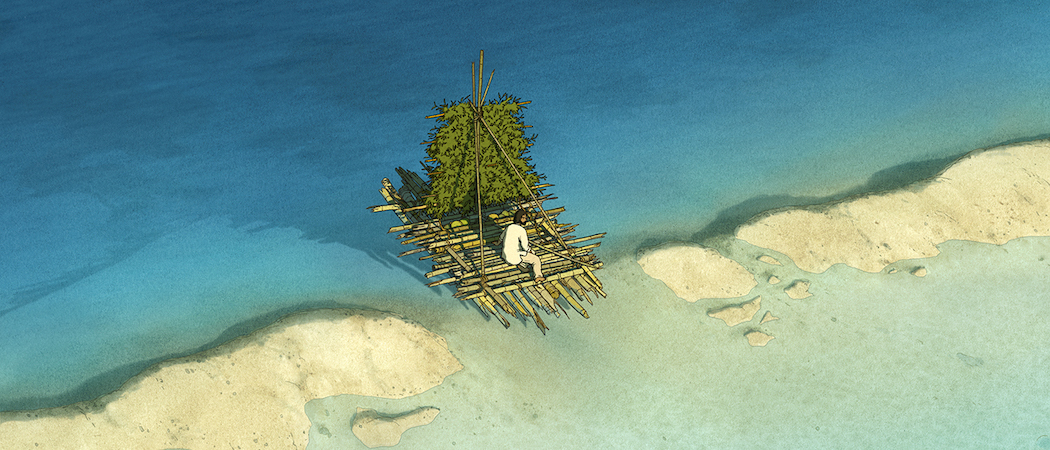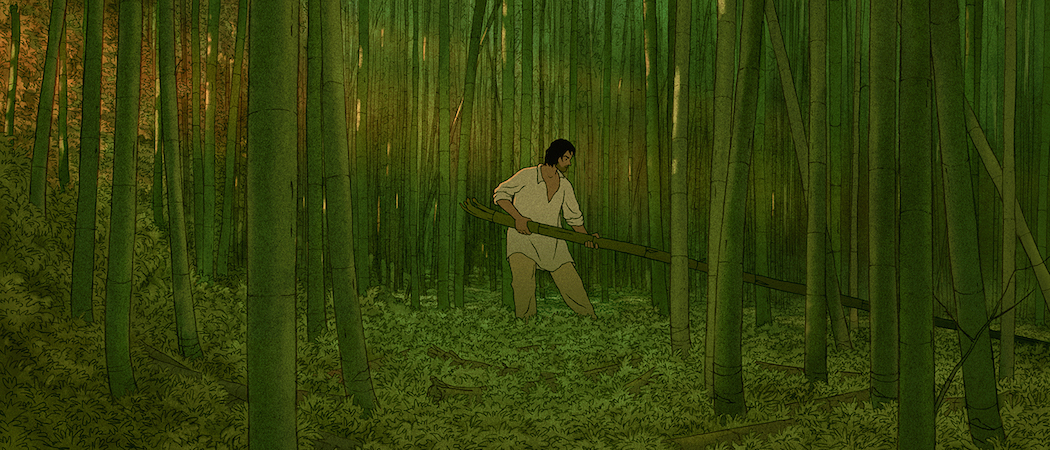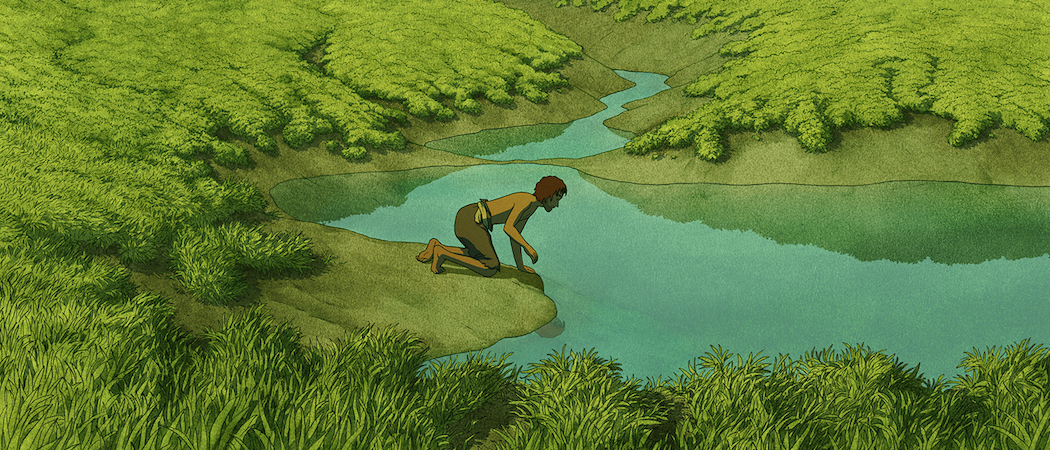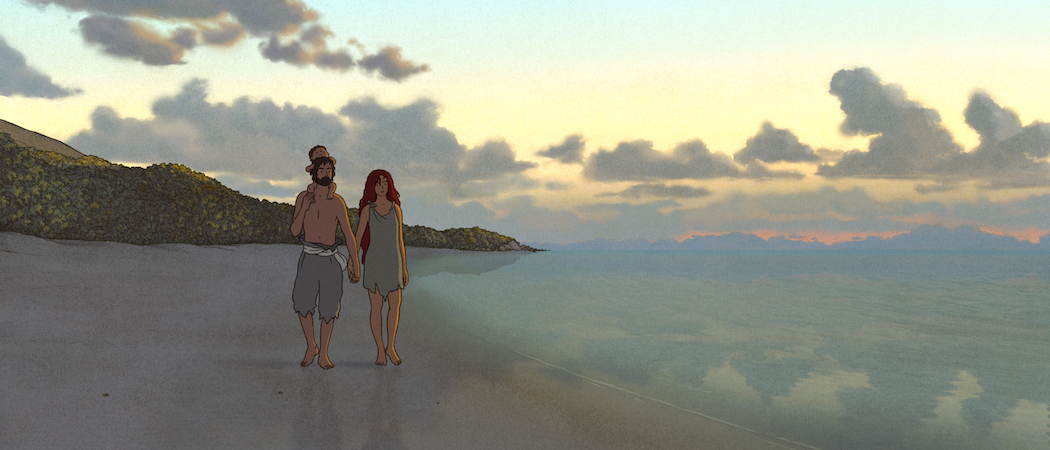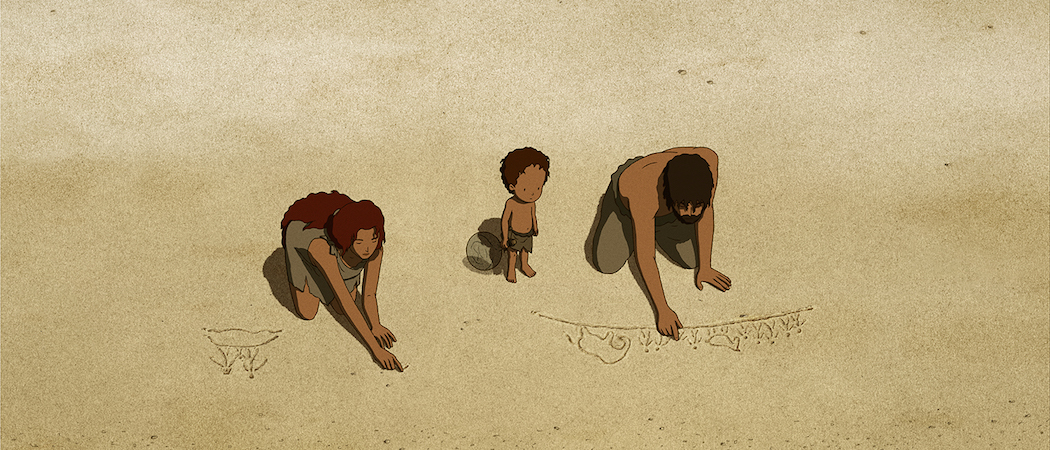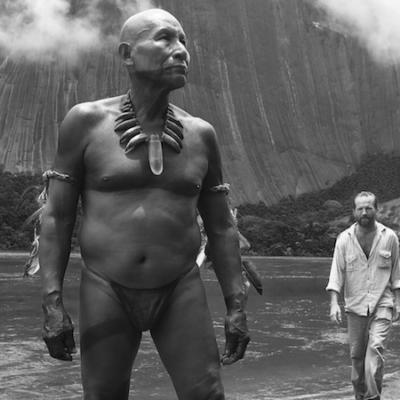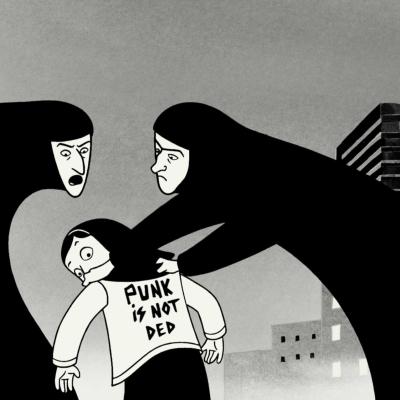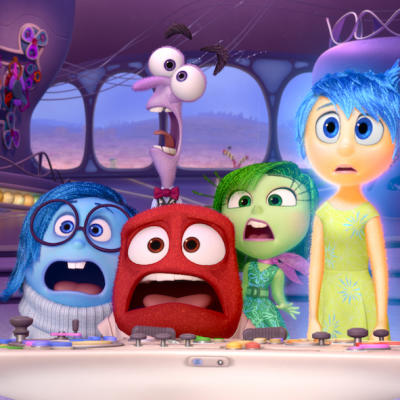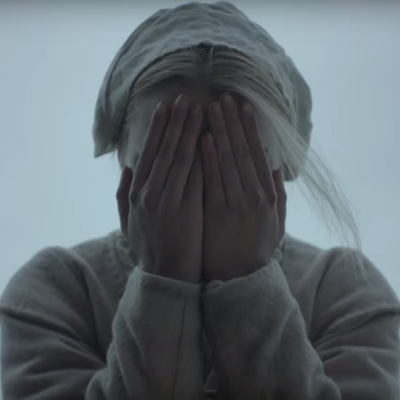The fact that the name Ghibli is attached to Wild Bunch co-production The Red Turtle will send many scrambling to see it, such is the reputation of the acclaimed Japanese animation studio. The film, a prizewinner in the Un Certain Regard section at this year's Cannes Film Festival, is marked just as much by its similarities to other Ghibli films, as it is by the way it diverges from them. Ultimately, The Red Turtle discards with morality tales in favour of an abstract, arguably obtuse meditation on death and isolation that pushes the limits of what narrative cinema (particularly animation) can be.
The feature debut from Dutch filmmaker Michaël Dudok de Wit - who wrote the film with Pascale Ferran - The Red Turtle is made with awe-inspiring inventiveness and unshakable confidence. It immediately thrusts the audience into the thick of the story (as a thick as a story this slight can be) with the film's unnamed hero being tossed around by a violent ocean. Before long, he awakens on a deserted, but fertile, island with only a few crabs for company. Despite featuring absolutely no dialogue for its entire length, The Red Turtle becomes immediately gripping as the protagonist explores the island, dreams of escape, and devises a way to head out to sea with a hand-made raft.His efforts are almost immediately scuttled by a strange and beautiful creature - the red turtle of the title - and the film enters its miraculous and beautiful second act.
The castaway's frustration and desperation is mirrored by the steady gaze and serenity of the enormous turtle. The short-lived face off between the two of them leads to violence, and ultimately guilt, which opens the door for the magical idyll that makes up the film's latter half. The themes of The Red Turtle are complex and not easily summarised, but they possess an emotional heft that will make them sink into the viewer's mind. The film asks us to ponder not only how humans deal with the prospect of death - the prospect of being and dying alone - but also how non-human animals are situated on the divide between life and whatever comes after.
To match its graceful, carefully composed narrative, The Red Turtle looks incredible. The backgrounds have a tactile and grainy appearance, with an effect almost like pointillism, making it seem as if the sharply drawn protagonist is marooned inside a giant painting. There is a constant sense of movement, shedding the artificiality of animation with lapping waves, shivering leaves, crisp reflections and other minute but profoundly important details. The gorgeous and lithe score by Laurent Perez Del Mar also heightens the absorbing atmosphere and emotion of the narrative and visuals.
Audiences may come away from The Red Turtle feeling the same sense of isolation and loss as the unnamed, almost completely unknown protagonist. The film seems to intentionally keep the viewer at arm's length, but still creates a transcendent and powerful emotional connection like the one depicted in its beguiling, fascinatingly circular narrative. The Red Turtle's quietness and slightness of story is surely not to all tastes, but it is a risk-taking venture, a beautiful piece of animation, and a stunning work of art in its own right.
The Red Turtle opens in Australian cinemas on Thursday September 22nd, distributed by Transmission Films.
